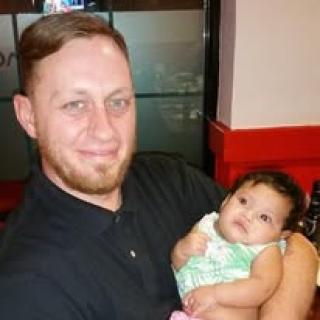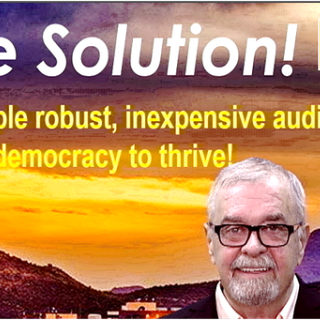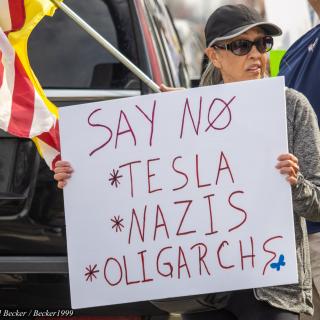Advertisement
Naomi Klein, author of This Changes Everything: Capitalism vs. the Climate, says that if everything is changing, everyone must be part of the change. Fair enough, but what can one person do?
Actually, you can do a lot right here in central Ohio. Simply Living members have been challenging the status quo since our founding in 1992. It’s not just about recycling, switching to LEDs, and starting a vegetable garden. We can and should do those things because they are the habits of a new, mindful, ecologically-aware culture that will supplant the current consumer culture.
The culture shift is critical but even more important is making individual choices that push back against the broken economic and financial systems of the mainstream culture. Our global, trans-national, commodity-based, free trade, fossil fuel driven “neoliberal” economy is no longer sustainable. Our mass, corporate-owned media channels normalize this unsustainable system by ubiquitous advertising and marketing of consumer goods and services, daily reporting on the ups and downs of the stock market, while ignoring or minimizing the destruction of our ecosystems and deep structural income and wealth inequality created by the system.
This may look like a David against Goliath fight against the American-led Capitalist Empire, not to mention the CIA/military industrial war machine that plays backup when corporate interests are threatened. Yes, the situation is dire, but we are not yet doomed, and even if we are, Bernie Sanders reminds us that “Despair is not an option.” Naomi Klein observes that we have waited too long to rely on incremental reforms. We must disrupt the current system and transition to a radical new green economy that works for everyone. We are the last generation available to lead this transition. The good news is there is a way forward that is already shaping the outlines of an ecological culture.
Local is the new radical. There is a path to a sustainable future that is being leveraged by bottom up change agents and movements for environmental and social justice all over the world. There is a role that each one of us can play in co-creating new economic and financial systems. Localizing our food and retail economies and investing in our local communities actually functions as a countervailing power to the seemingly inevitable status quo.
There is a growing body of literature from visionary thought leaders like David Korten, Michael Shuman, and Helena Norberg Hodge that localization is a “solutions multiplier! “ Collectively, our individual choices are already beginning to shape the emergence of sustainable systems capable of being scaled up to address climate change, create new energy and transit systems, revitalize neighborhoods, increase participatory democracy in our electoral systems and in the workplace. When we localize, everyone can get involved. Here are some practical ways you can speed up the change process in central Ohio.
- Eat local. Drink local. When you choose to eat at a locally owned restaurant, especially one that sources local ingredients, and serves locally produced soft drinks, craft beers, wines, etc. it makes a difference! You are not only enjoying a wonderful local meal you are supporting local farms, breweries, and entrepreneurs. The collective outcome is a more sustainable local food system that rebuilds soil, captures CO2, and chips away at the mega industrial farms that grow commodity foods for food processing plants, ethanol factories, and export to other countries.
- Buy local. Consume less stuff. Young people get it. Mllennials flock to the local restaurants and bars, and they are the entrepreneurs starting local businesses: food trucks, craft stores, co-op art galleries, vegan bakeries, thrift shop boutiques, coffee shops, used book stores, urban gardens, local music in every genre, even a “sew-op” like Dabble and Stitch where you can make your own clothing. They are transforming our neighborhoods with their DIY spirit and they’re creating a new local economy based on making things and sharing experiences, not buying stuff at the chain stores in the malls. But are we localists fighting climate change? You bet. The global economy of stuff criss-crossing our borders contains the carbon pollution we outsourced embedded in the consumer goods we import. When we buy less stuff we vote against the outsourcing and the importing of planet warming green house gases.
- Move Your Money. Are you still depositing your pay check at a mega bank? Here again the better choice is to bank locally at a credit union or a community bank focused on serving the needs of our local businesses. It comes down to Wall Street vs Main Street. Wall Street is driven by the stock market and commodity markets that fuel the global economy. That’s where the profits have been for the past 50 years, but climate change proves that this system must change. In the USA, we have $30+ trillion dollars in our banks, IRAs, pension funds, etc. and almost all of it feeds this unsustainable global economy. In stark contrast, when you choose to bank locally, we collectively begin to move the investment needle back to our local economy. We can’t outsource everything, so about 50% of the US economy remains local. Now imagine if we were to invest $15 trillion dollars into our local economies. That’s the future of a new trans-local economy that is sustainable and accountable to our local communities.
- Invest Local. When we support our local retail and food economies, as well as local banking services, we are “investing” our dollars and collectively reaping the benefits of localization. Keeping our money local is a solutions multiplier: more jobs are created, more community wealth generates more taxes for public services, more money can be loaned to start and expand local businesses, and ecosystems are less likely to be polluted because accountability is local. As neighborhoods are revitalized, quality of life is improved and communities become more resilient and sustainable.
How we spend our money is only the first level of investing in our communities. We tend to think of investors as the wealthy class of people who invest their money in the stock market and work with financial advisors and wealth managers to maximize their ROI (Return on Investments) and, ideally, live comfortably on the interest and stock dividends from their investments. That’s the Wall Street model.
Local investment strategies – level 2 opportunities for ordinary citizens, are emerging. The Economic and Community Development Institute (ECDI) manages the Invest Local Ohio (ILO) fund that offers micro loans to small businesses and startup entrepreneurs. Anyone with a minimum of $1000 can invest in the ILO fund and earn more in interest than you typically receive from a CD or indexed mutual fund. You have a choice now to invest in Main Street instead of Wall Street. The public banking movement is another significant trend with more than 50 cities and states exploring a “public option” to address local infrastructure needs and poverty issues that are not being served by private banks. A return to local stock markets may also be on the horizon as prototypes are being tested. See more in the Localists’ Guide to Reverse Global Warming.
Never doubt that a small group of thoughtful, committed citizens can change the world; indeed, it's the only thing that ever has. ~ Margaret Mead
Organize! We can push back against the system with our individual choices, but we flex our citizen muscles through the power of numbers. It’s through our local grass roots organizations, advocacy groups, government agencies at every level, and collaborative networking across nonprofits, progressive businesses, community leaders, university students and faculty that new sustainable practices and policies are emerging to disrupt the status quo. Take some time to scan our Localists’ Guide. No one can participate in all of these change agencies, but all of us can participate in one or two by volunteering our time and/or money.
Localists’ Guide to Reverse Global Warming and Stabilize Earth’s Climate
This Guide connects the dots to reveal that multiple societal systems contribute to climate change. Find your passion, become informed, and volunteer your time and/or money to do your part in creating a sustainable future.
Environmental Sustainabilityis achieved when organizations conserve and protect natural resources and educate the public about the benefits of healthy, resilient, pollution-free communities in the fight to reverse global warming.
- Columbus Audubon Society offers EcoWeekend, Citizen Science programs, and advocates conservation policies
columbusaudubon.org/ - Columbus Green Spot offers a variety of programs to go green
columbus.gov/greenspot/ - Drawdown EcoChallengeis a collaboration between Paul Hawken’s Project to identify 100 best strategies to reverse global warming and the Northwest Earth Institute’s EcoChallenge to drive individual climate actions.
drawdown.ecochallenge.org - Environmental Professionals Network(EPN) organized by OSU’s School of Environment and Natural Resources. Offers free and inexpensive educational programs open to the central Ohio community
epn.osu.edu - Green Columbusholds monthly Green Drinks events and their annual Earth Day celebration offers the largest number of volunteer service projects in the nation.
.greencbus.org - OSU Climate Change Outreach Team is a partnership among OSU departments to help localize the climate change issue by bringing related research and resources to residents of Ohio.
changingclimate.osu.edu - Simply Living offers community education for sustainable living including monthly Meetups, Documentary Films + Local Solutions, courses on sustainability topics, and information on community events.
simplyliving.org - SWACO(Solid Waste Authority of Central Ohio) offers free household hazardous waste collection, drop-off recycling centers, and a resource directory of 70+ organizations involved in specialized recycling of e-waste, compost, furniture, etc.
swaco.org
Watershed Organizations
- Darby Creek Association darbycreekassociation.org/
- Friends of Alum Creek and Tributaries (FACT) friendsofalumcreek.org
- Friends of Big Walnut Creek facebook.com/fobwc/
- Friends of the Lower Olentangy Watershed (FLOW) olentangywatershed.org/
- Friends of the Ravines friendsoftheravines.org
- Olentangy Watershed Alliance olentangyriver.org
- Rivers Unlimited riversunlimited.org
- Wild Ones promotes biodiversity through landscaping with native plantsfor
wildones.org/chapters/columbus/
Political Action can address climate policies through direct action, lobbying, and by limiting the corruption of democracy by corporate campaign contributions.
- Citizens Climate Lobby, Columbus Chapter lobbies Congressional representatives and solicits community endorsements for legislation to tax carbon emissions and return the revenues to every American household.
citizensclimatelobby.org/chapters/OH_Columbus/ - Columbus Community Bill of Rightspetitions Columbus City Council to adopt a charter amendment that guarantees clean air, pure water, and safe soil to all residents. They advocate for local home rule to stop pollution from pipelines and fossil fuel extraction.
columbusbillofrights.org - Franklin County Green Party iscommitted to environmentalism, social and economic justice, grassroots democracy and non-violence through community-based organizing without the support of corporate donors. ohiogreens.org/franklincounty
- Keep Wayne Wildis a campaign to protect Ohio’s only national forest and stop the sale of oil and gas leases
keepwaynewild.com - Move To Amend Central Ohio is the local affiliate of the national campaign for a constitutional amendment that declares that corporations do not have the rights of individual citizens and that money is not speech under the first amendment.
movetoamend.org/oh-columbus - Ohio Environmental Council advocates for policies that secure clean air, land, and water.
theoec.org - Yes We Can Columbusis a coalition organized to advocate for working families by promoting a $15 minimum wage, the end of tax abatements to attract corporate investment in high income neighborhoods, and strategies to reduce the influence of money in our elections.
yeswecancolumbus.org
Renewable Energy Systems directly reduce greenhouse gas emissions that cause global warming. - AEP Energyoffers Eco-Advantage option to purchase 100% wind energy. aepenergy.com/residential/renewable-energy/
- Columbus Municipal Power offers an EcoSmart Choice option to purchase 100% green energy
columbus.gov/GreenPower/ - Columbus Smart City grantoffers a variety of programs that support the transition to electric vehicles, installation of charging stations at local businesses and apartment buildings, driverless cars, and collaboration with COTA and universities to explore new transportation opportunities.
columbus.gov/smartcolumbus/home/ - Clintonville Energy Collaborative envisions a solar home on every street in the neighborhood
http://cec-freedom.org/ - Green Energy Ohio (GEO) offers individual memberships and its annual tour is the largest in the USA showcasing renewable energy installations. greenenergyoh.org
- Ready for 100is a project of the Sierra Club that is advocating for a rapid transition to 100% clean energy with special focus on cities and mayors.
sierraclub.org/ohio/central-ohio/readyfor100columbus - Clean Fuels Ohiooffers individual memberships and hosts electric vehicle demonstrations throughout central Ohio
https://www.cleanfuelsohio.org/ - Ohio Interfaith Power & Lightworks with congregations of all faith traditions to “green” their building and their services by providing energy audits and assistance in implementing their recommendations
ohipl.org - Transit Columbushas developed petitions and campaigned to encourage Columbus and COTA to consider transitioning to light rail, bus rapid transit, and electric street cars options to avoid some of the problems associated with our current car-centric freeway systems.
transitcolumbus.org
Sustainable Food Systems localize rural and urban agriculture while lessening the negative impacts of the global industrial food system on climate change.
- Franklin County Local Food Council works to strengthen local food system
fclocalfoodcouncil.org/ - Franklinton Farms: growing food, creating food, building community
franklintonfarms.org/ - Growing to Greensupports 250+ community gardens
fpconservatory.org/education-programs/outreach-programs/growing-to-green/ - Guide to Farmers Marketsprepared annually by the editors of Columbus Underground
columbusunderground.com - Local Mattersworks to transform our broken food system
Local-Matters.org - OEFFA– the Ohio Ecological Food and Farming Association leads the organic food movement and certifies organic farms
OEFFA.org
Sustainable Business, Economics and Finance Systems localize economic development to increase community resiliency while limiting the negative impacts of the global economy on climate change.
- Binzagr Institute for Sustainable Prosperitybased at Denison University serves as a clearinghouse for research and information about new economic approaches to finance job guarantee programs that address environmental infrastructure, poverty, and income inequality.
- binzagr-institute.org
- Connects Columbus buy local app to save at bars, restaurants, and retailers while helping to localize economic development and community wealth.
connectscolumbus.com - Economic and Community Development Institute (ECDI) offers micro loans to small businesses and startup entrepreneurs. Manages the Invest Local Ohio fund to give citizens the opportunity to invest in Main Street businesses.
ecdi.org - KIVA USA combines crowdfunding with 0% loans to fund projects for small business
kiva.org/borrow [Columbus contact is Lily Vail <lily.vail@local.kiva.org>] - Ohio Sustainable Business Council (OSBC) advocates and lobbies for progressive policies supported by small and medium sized businesses in Ohio
http://osbcouncil.org/
Slow Money Central Ohio organizes lending circles to provide loans to food businesses
slowmoneycentralohio.org - Social Ventures offers a directory of more than 100 social enterprises in central Ohio. Training, technical assistance, and funding services are available.
socialventurescbus.com - SOLE (Support Ohio Local Economies) offers informational seminars on how to invest locally. A team is being formed to advocate for a public bank in Columbus.
solenow.org



